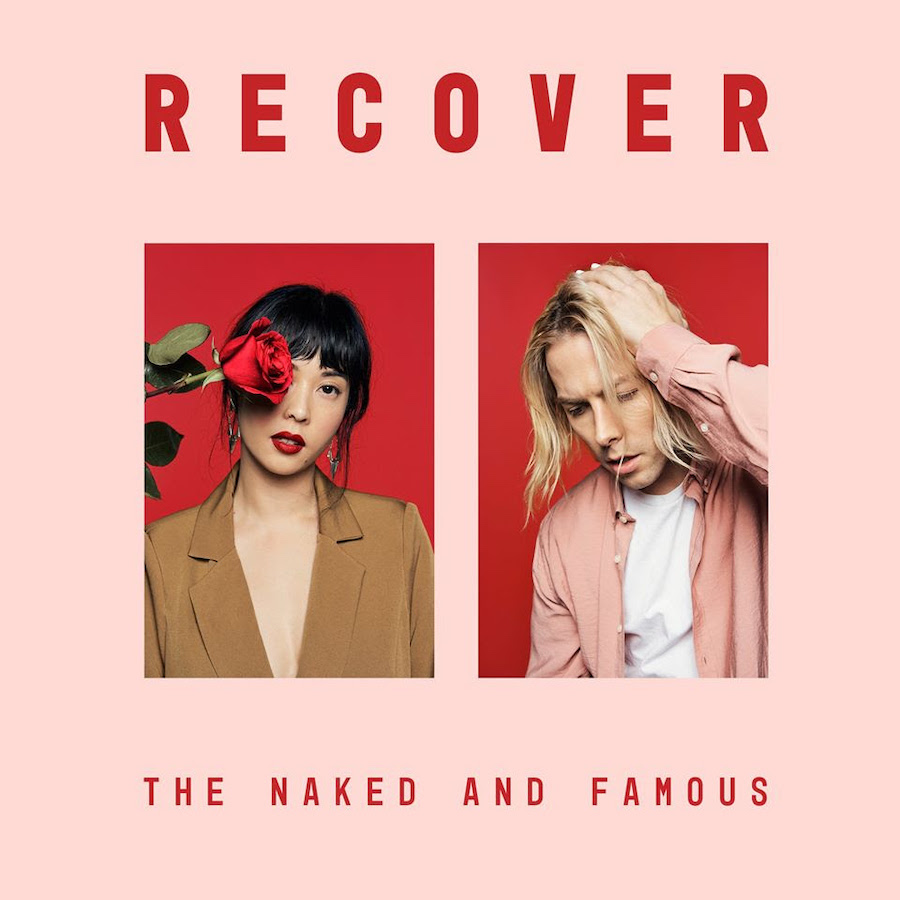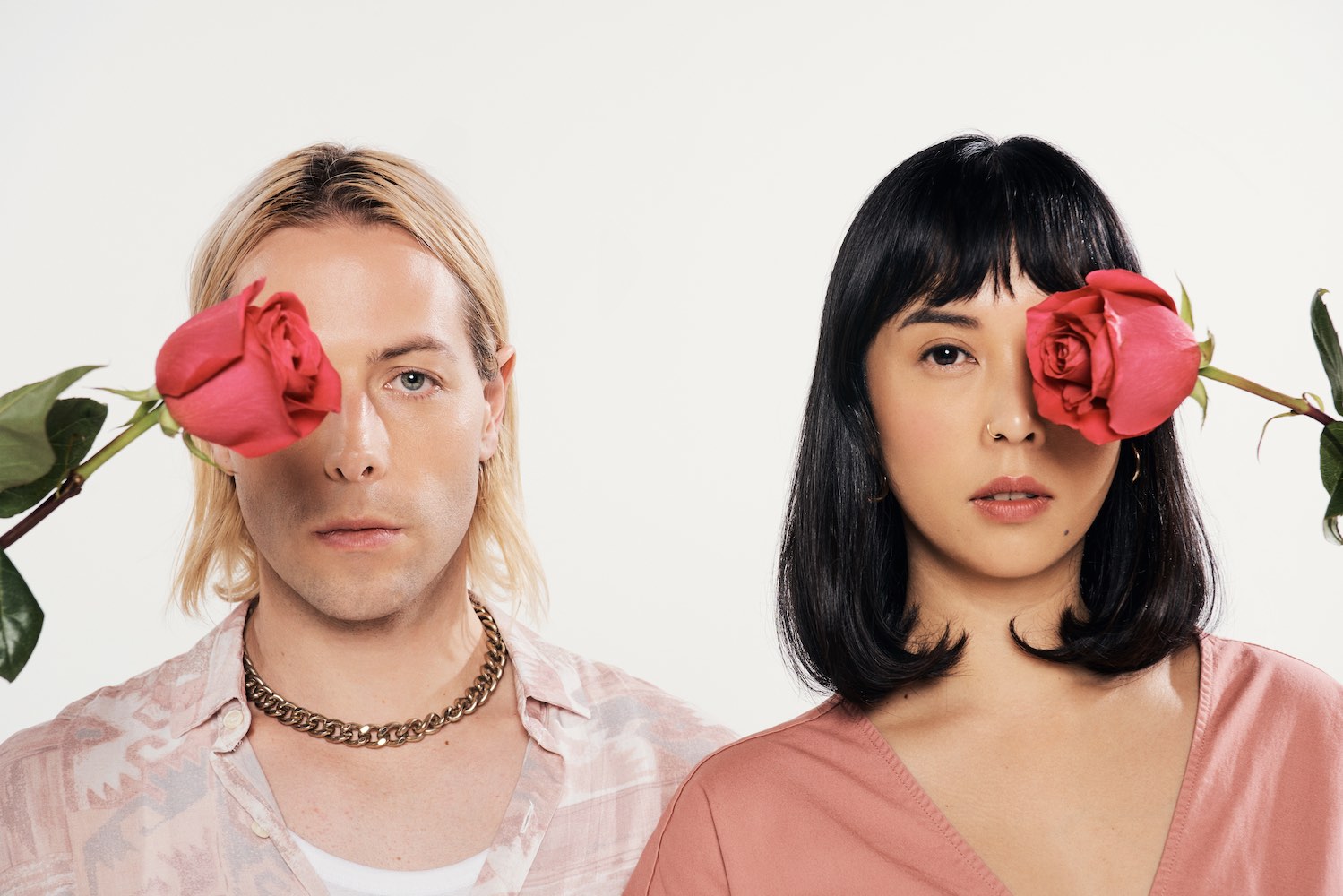Foto-Credit © Larsen Sotelo
Bereits 10 Jahre sind ins Land gezogen, seitdem die Neuseeländer von The Naked And Famous mit ihrem Hit Young Blood die Dancefloors jeder Indie-Disco abbrannten und es dank einer häufig gezeigten Werbung sogar ins Fernsehen schafften. Damals, als Fernsehen für junge Menschen noch relevant war. Tempus fugit eben. Nachdem es trotz zwei weiteren Alben eher still um die Band wurde, haben sie unaufhörlich an ihrem markanten Gute-Laune Indie-Pop gefeilt und legen nun mit Recover ihre bereits vierte Platte vor. Grund genug für unsere Autorin Emely den Indie-Dinos einige Fragen zu stellen, unser Interview mit The Naked And Famous.
First of all: How are you and how are you dealing with the current situation? What would’ve been your plans for the summer?
We are doing fine. Neither of us has contracted COVID! We are in the USA, a.k.a. a dysfunctional mess. We were planning to be on tour, but we’re shifting gears to finish a few music videos, although we’re facing all kinds of new challenges. We are still social distancing. I don’t know if I’m ‚dealing‘ with the situation so much as surrendering to it. Reading the news doesn’t leave me with the feeling that the world wants any music right now. I feel a bit guilty, promoting music amongst so much social upheaval.
What is your first memory of contact with music? And when did you start to play music?
I remember my father playing guitar for my brother and me – I must’ve been about five years old. He taught me a few guitar chords when I was ten, and I fell in love with rock music. All my close friends in high school were musicians. Nu-metal was at its peak.
How would you describe your music and which influences do you have?
I’m stoked on all the labels we’ve been given over the decade. Early on in our career, I felt like challenging how we were perceived but, overall, I feel lucky and grateful to have any public identity. I have a hard time relating to people, and very low self-esteem, so being recognized has always made me feel very included. Indie, alternative, electronic, pop, industrial, rock: any combination of these.
What genre attracts you personally the most?
I grew up listening to ‚alternative music,‘ and that meant anything that wasn’t on ‚pop‘ radio. Film analogies are useful here. I liked A24 films and scoffed at people who liked Disney. My taste hasn’t changed all that much, although I do enjoy some Disney films now. Perhaps most importantly, I see through the imagined superiority I thought came from ‚taste.‘ I no longer feel it’s useful to have a charged emotional response to the idea of labels and genres. They’re just approximations – helpful communication tools and conversation starters. Art is a subject experience and an amorphous, constantly evolving concept. I am more likely to love a few artists, from a genre, rather than the genre in its entirety.
Your band name is inspired from Tricky Kid by Tricky, is his music still an inspiration for you?
Absolutely. I was listening to Pre-Millenium tension just yesterday.

Can you describe the production process of your new record Recover, how, when, and where it came into life, what was the best/what the worst moment during the production, and what is the most told anecdote of that time?
We’d had a few false starts but hit our stride in the summer of 2018 when we wrote the bulk of the album. The first song from that period was the title track, ‚Recover.‘ It was a significant sonic and emotional moment, marking the beginning of the album. Songs like Sunseeker, Come As You Are, and Easy were completed promptly after.
Which artists inspired you most in the writing process for the new album?
It’s not like when we were kids, and could cite our inspiration with confidence because they were in our minds. That rabid fandom has naturally dissipated for us. I don’t mean to sound jaded, but I think it’s a natural part of getting older. One’s priorities change. The world gets both bigger and smaller, all at once. We don’t operate like that anymore. For me, the creative energy and new ideas (in the room) set against the backdrop of my entire musical history is all the inspiration I need. If I hear a lyric, melody, or bed of instrumentation that feels inspiring, I don’t need to link it back to anything. Recover is an excellent example of this: Alisa came bursting into the studio that day and exclaimed, „I’ve written a song on the drive over here!“ It was excellent right away. And we didn’t reference any songs that day; we just did what came naturally.
I sometimes imagine it to be hard to write songs with more persons than just yourself. How do you manage that, or have you created some kind of work split throughout the years?
It is easier, without a doubt, to complete a song with the aid of collaboration, but I feel it’s crucial to make distinctions about how and why. It depends on so many things – this could be an entire interview in itself lol. The most authentic and effortless lyrics are born when someone is leading and has a very singular vision or personal narrative. It’s much easier to supplement someone’s creative flow than it is to co-pilot. There’s also the quest for authenticity and originality – a camel is a horse designed by committee. This is all anecdotal, though, and may come from the fact that I have a hard time relating to people. This is why I don’t think I could ever be capable of writing hugely successful pop music. I’m not an educated person, but I’m fascinated by things like confirmation bias, logical fallacies, etc. And sadly, creativity kind of thrives on delusion and motivated reasoning. Often in the studio, I nod and say, „Yeah!“ While I’m actually thinking, „I’m not following anything you’re saying, and you’re not making any sense to me whatsoever. I’m stuck on all the internal contradictions you’ve just put forward, and have never experienced the thing you’re telling me about.“
You said your single Come As You Are started as a love song, now it turned out to be a hymn to individuality, where did that twist come from?
When it comes to lyrics, we’re universal when we’re personal. What began as a personal love song about accepting someone as you find them transformed into a mission statement: come as you are, with all your layers and complexities. This song is about the importance of welcoming and accepting people from all walks of life – an anthem of inclusivity. In the past, we’ve felt discouraged from taking a social stance. This song was intended to let people know The Naked And Famous are a band that welcomes all fans. I think this is important now, as technology has separated the art from the artist.

Your new single Death just came out some days ago – can you let us know what it is about, how it came into existence, and if there is a story behind the song (and if which)?
Mortality has always fascinated me, but it’s becoming more of a tangible concept as my family gets older. Age and experience have brought me some perspective on just how fragile life is. Nothing is permanent, and we take a lot for granted. Nowhere is this more salient than in the haunting awareness that our loved ones will one day be gone. More and more, I think about the limited time I have to share with the precious people that luck has introduced me to. Death is a sober and loving reminder to value the life around us and stay appreciative and connected to those we cherish… this mentality feels especially crucial during the times we currently find ourselves in.
The whole album has a really self-reflected tone, is it easier for you to write about personal experiences?
I’d like to write more from the perspective of others or speak more socially, but personal experience is the only thing I feel comfortable writing about at this point.
Was it always easy to open up your inner feelings/thoughts to the public, or how did you manage to overcome doubts in that matter?
Ironically I was more confident about our lyrics when I was younger and had far less awareness of my feelings. Youth is an enchanted state of overconfidence. At 33, I feel far more capable of expressing myself through lyrics, yet more concerned about how they will connect. So it’s like, I know myself, and I’m not afraid, to be honest, but I’m doubtful that anyone will relate. I’m not scared – I’m despondent.
You have been making music together since 2007, were you ever afraid that you wouldn’t succeed in that time? What would each of you do if you couldn’t make a living from the music?
Again, youth is an out-of-sight, out-of-mind state of consciousness. The future feels infinite and far too distant for concern. I had no backup plan and was living paycheck to paycheck. All I’d ever wanted was to be a musician. I set a very reasonable bar, though. Finishing an album was the only goal. I just wanted to feel like TNAF was the ‚real deal.‘
What songs would you choose if you could only listen to 3 songs for the rest of your life?
Thom Yorke – All For The Best, Massive Attack – Inertia Creeps, Max Richter – Infra 5.










